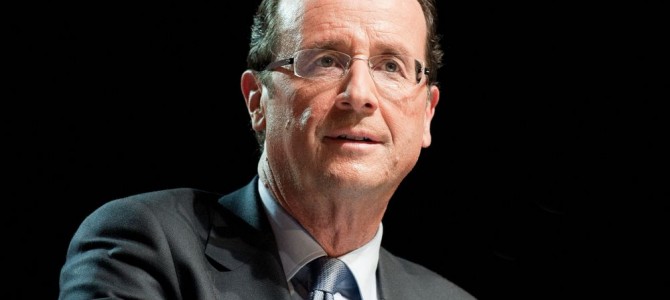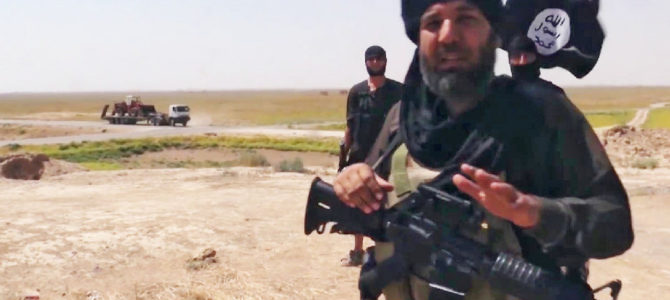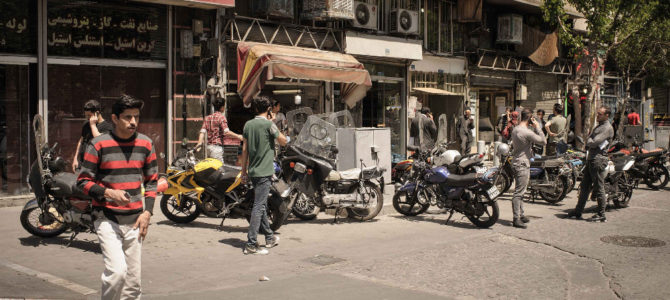
It’s hard to feel hopeful about the state of Europe these days. In the two weeks since a Tunisian-born man drove a truck through a crowd in Nice, killing 84 people, Germany has been victim to four violent attacks. Then, on Tuesday, two men stormed a church in the north of France and slit the throat of the 86-year-old priest who was performing Mass. In the face of this seemingly endless onslaught, Europe’s leaders appear helpless.
The attack on the church was small in scale and took less planning than something like the Bataclan massacre. But even the smallest-scale attacks can have the biggest effect. This latest horror has profoundly shaken the traditionally Catholic country. Perhaps this explains why French President François Hollande made a somewhat unusual comment about religion and the state. Is it an indication France is finally ready to defend its culture?
On Tuesday, Hollande said, “Killing a priest is to desecrate the republic, which guarantees freedom of conscience.” He made it clear that attacking any religious institution strikes at a fundamental aspect of the republic. But it seems his comments weren’t just about freedom of religion. He may have been daring to single out Catholicism as particularly important to French civilization.
The French Freedom From Religion
France guarantees religious freedom, as outlined in the 1789 “Declaration of the Rights of Man and of the Citizen,” as well as a 1905 law that guarantees separation of church and state. But it also holds laïcité, or secularism, as one of its highest beliefs. According to the principles of the revolution, every individual should be able to approach the state on equal footing. This means no allegiances to any groups, including religious ones, that supersede allegiance to the state. This is intended to ensure equality among citizens. For this reason, the state cannot formally acknowledge any religion.
France’s stance on religious freedom is, in a sense, the reverse of how we think of it in the United States. It protects people from being infringed upon by other religions, rather than religions being infringed upon by the state. In France, it’s a sacred right not to have others’ religions foisted on you.
This is what makes Hollande’s comments so remarkable. He’s emphasizing France’s relationship to the Catholic Church, even if he’s technically stating support for all religions. The subtext seems to be what many in France are thinking: ISIS went after the core of French heritage and patrimony.
It’s also important to note that Hollande used the French verb “profaner,” to profane, which itself has a strong religious connotation. The word originates from the Latin “profanus” which, according to the Oxford dictionary, means “outside the temple, not sacred.” The French antonym of “profaner” is “consacrer,” to bless, sanctify, or consecrate.
Hollande’s choice of words lends his comments a religious overtone that implies killing a priest strikes a particularly sharp blow to France, more so than if another religion had been targeted. Coming from a head of state, this breaks with the tradition of official French secularism.
Believing in Nothing Means Falling for Anything
Whether or not this is the message Hollande intended, it is precisely the kind of defense of culture and heritage, if not religion, that will be necessary if Europe wants to have a chance of combatting radical Islam at home.
Europe has repeatedly been accused of being unwilling to fight for its culture and civilization. In an article published Tuesday, Bret Stephens wrote that the Europe of today “mixes French political weakness with German moral solipsism. This is a formula for rapid civilizational decline, however many economic or military resources the EU may have at its disposal.”
This was the point of Michel Houellebecq’s 2015 novel “Submission.” The story is set in a near future where a Muslim political party has just been voted into power. The new government begins to move France toward sharia law and away from its own values. All university professors must convert to Islam, and women are no longer allowed to wear pants.
Rather than push back, French society acquiesces, because France, much like the protagonist in the story, no longer believes in anything. So there is nothing with which to fight. Houellebecq’s concern is that if France won’t defend its own culture, first by believing in it, it will slowly allow it to die—and be replaced.
One of the reasons Europe has been afraid to defend its culture and way of life is because of the progressive doctrine that dictates defending one’s culture implies that culture is superior to others. This would be a major violation of enlightened liberal orthodoxy. Much of this comes from European shame over its colonial past. After imposing its own culture on other societies for so long, Europe is now in a constant state of mea culpa. Thus it has forgotten the actual value its culture has to offer.
The hope is that France, which has taken the brunt of terror attacks in the West in the last year and a half, is beginning to see the need to fight. Of course, it’s not unusual to find rhetoric defending France’s religious and cultural identity in the National Front party. After the attack on the church, National Front President Marine Le Pen said, “The heart of our nation’s cultural identity has been intentionally struck.” She acknowledges Catholic tradition is a crucial part of French culture. Her growing appeal, as evidenced by recent poll numbers, suggests many people feel the same.
The question is whether this narrative is moving into the mainstream. Hollande’s comments indicate the answer may be yes. But it’s by no means certain.
Hollande told reporters Tuesday that “Daesh [ISIS] has declared war on us. We have to win that war.” Certainly France must take tangible steps toward better defending itself from internal threats, and there are various suggestions for how to do that. But it must first see enough worth in its own society to want to save itself. It must not be too ashamed to fight back.









